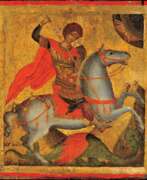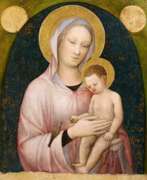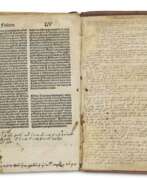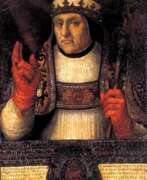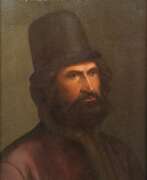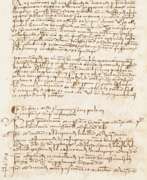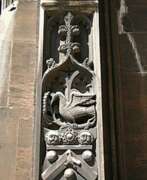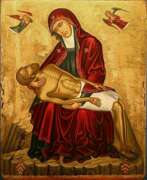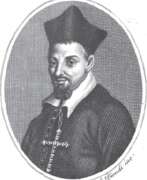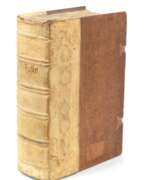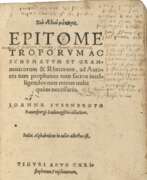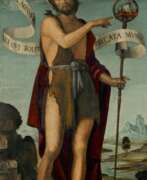Educators 15th century
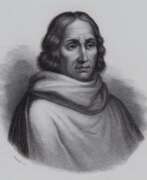

Jean Charlier de Gerson was a French academic, theologian, preacher and politician of the 14th and 15th centuries.
Jean Charlier de Gerson was Chancellor of the University of Paris from 1395 until 1415, and as such played a major role in the political troubles between the Duke of Orleans and the Duke of Burgundy, subsequently known as the Armagnacs and Burgundians, as well as in the crisis arising from the Great Western Schism.
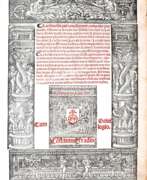

Estienne de la Roche, also known as Estienne de Villefranche, was a French mathematician.
He is known for having taught mathematics in Lyon for 25 years as a professor of mathematics. In 1520 he published the Arismatics, considered at the time the best reference book on algebra.
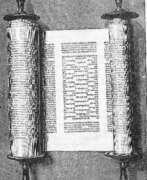

Paolo Ricci (Italian: Paolo Ricci, Latin: Paulus Ricius, German: Paul Ritz), also known as Ritz, Riccio, or Paulus Israelita, was a humanist convert from Judaism, a writer-theologian, Kabbalist, and physician.
After his baptism in 1505 he published his first work, Sol Federis, in which he affirmed his new faith and sought through Kabbalah to refute modern Judaism. In 1506 he moved to Pavia, Italy, where he became a lecturer in philosophy and medicine at the university and met Erasmus of Rotterdam. Ricci was also a learned astrologer, a professor of Hebrew, philosophy, theology, and Kabbalah, a profound connoisseur and translator of sacred texts into Latin and Hebrew, and the author of philosophical and theological works.
Paolo Ricci was a very prolific writer. His Latin translations, especially the translation of the Kabalistic work Shaare Orach, formed the basis of the Christian Kabbalah of the early 16th century.
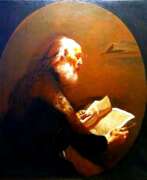

Celio Rodigino (Latin: Caelius Rhodiginus), real name Ludovico Ricchieri, was an Italian writer, educator and Renaissance humanist.
Rodigino studied in Ferrara and Padua, and then was professor of Greek and Latin at Rovigo. In 1515 he became chair of Greek at the University of Milan.
His principal work was Antiquarum Lectionum in sixteen books, published in Venice in 1516. In this work Rodigino collected a considerable number of short essays and notes on Latin and Greek antiquity, from literature, philology, and science to philosophy, history, anthropology, and morality, as well as reflections on ancient music. He also wrote commentaries on Virgil, Ovid, and Horace.
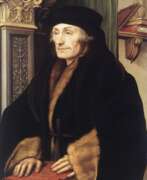

Desiderius Erasmus, also Erasmus of Rotterdam, or simply Erasmus (Latin: Desiderius Erasmus Roterodamus, Dutch: Gerrit Gerritszoon) was a Dutch humanist, philosopher, and the greatest scholar of the Northern Renaissance.
He was illegitimate and brought up under the name Gerhard Gerhards, later in Latin his name was dubbed Desiderius Erasmus. At the age of 13, the boy was sent to a monastery, where he later took the ministry. Erasmus read a lot, improving in Latin and Ancient Greek, studied oratory. A few years later he received the post of secretary to the bishop of the French city of Cambre. From 1493 to 1499 Rotterdam lived in Paris, then in London he was introduced to Thomas More, John Fisher, and John Colet.
Erasmus was constantly on the move, rarely staying in one place and traveling frequently between the Netherlands, Britain, France and Italy. In Turin he earned a doctorate in theology and was received by the Pope, then taught ancient Greek and theology at Cambridge. He corresponded with the rulers of various countries, popes and cardinals, and with statesmen, answering their questions of a scientific, political, and philosophical nature. As a true humanist, Erasmus of Rotterdam adhered to the ideas of a scientific spirit that favored research and true knowledge.
Among the merits of Rotterdamsky study of religious texts from a scientific position, critical interpretation of theology. Erasmus was able to lay the groundwork for historical-critical study of the past, especially in his studies of the Greek New Testament and the church fathers. His educational writings helped to replace the old school curriculum with a new humanistic emphasis on the classics.
In 1501, Erasmus produced a religious and ethical treatise, The Arms of the Christian Warrior, published in 1504. His work entitled "The Praise of Folly" was reprinted 40 times only during the author's lifetime, the book has been translated into all popular languages of the world. The series "Conversations in a Simple Way" (1518-1533) is among the most popular books on pedagogy. Erasmus promoted respect and care for children, opposing violence and corporal influence. He also promoted the idea that education should be compulsory for everyone.
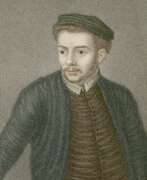

John Skelton was an English poet and writer of the Tudor period.
He was educated at the University of Cambridge, followed by degrees in rhetoric at Oxford, in the Netherlands, and at Cambridge. He was also a translator of ancient Greek and Roman authors. In 1488 Skelton was appointed court poet to Henry VII and then tutor to the Duke of York (later Henry VIII). In 1498 he took holy orders.
Skelton was known as a poet and satirist on both political and religious subjects. His best-known works include the moralizing play Magnyficence (1516), the humorous poem The Tunning of Elinor Rumming (1520), and numerous satirical poems in which he ridiculed both secular and ecclesiastical authorities. His reputation was confirmed by Erasmus of Rotterdam himself, who spoke highly flatteringly of Skelton.
